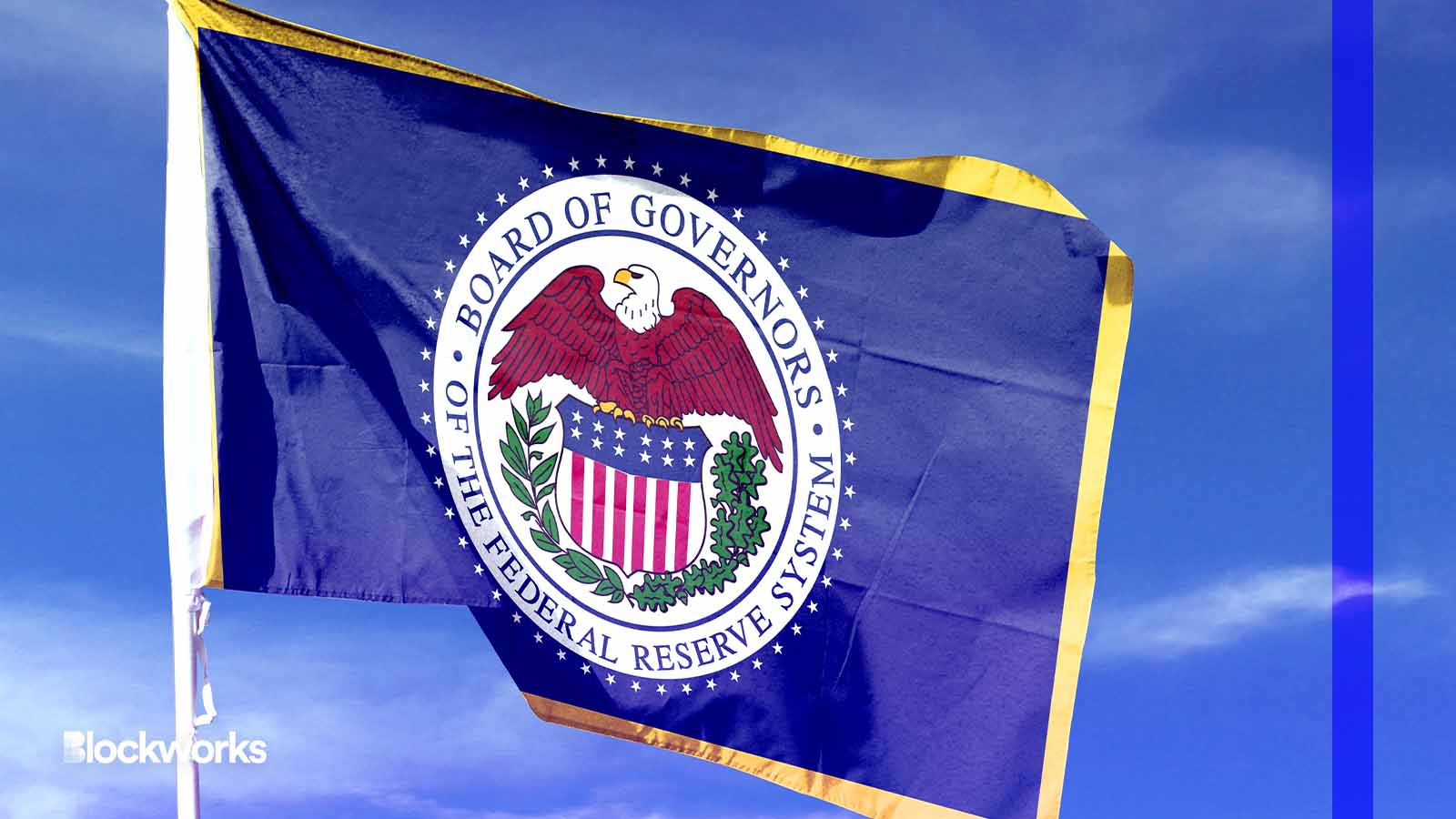Federal Reserve takes enforcement action on Farmington bank, citing stablecoin venture
The bank previously had ties to both Sam Bankman-Fried and Alameda

Andy.LIU/Shutterstock modified by Blockworks
The Federal Reserve announced that it has taken enforcement action against Farmington State Bank, alleging that it “improperly” changed its business plan and failed to inform the Fed.
Specifically, the Fed claims that Farmington violated its commitments by changing its business plan without receiving written approval from either the Board of Governors, the Reserve Bank or the Washington State Department of Financial Institutions.
Farmington made a commitment to both work with and help design IT infrastructure to “facilitate the third party’s issuance of stablecoins to the public in exchange for receipt of 50 percent of mint and burn fees on certain stablecoins, and took material steps to implement that memorandum of understanding,” the Fed said in a Thursday filing.
The bank has a history with Sam Bankman-Fried and Alameda, though neither are mentioned in the enforcement action. Back in March 2022, Farmington adopted the moniker Moonstone Bank, which was followed by Alameda investing $11.5 million into the bank.
The action does not cite a specific stablecoin commitment from Farmington, however. According to a Globe Newswire posting on Oct. 24, 2022, Fluent announced a partnership with Moonstone — following the name change — claiming that it would issue a US+ Stablecoin.
“The Board’s action ensures the bank’s operations will wind down in a manner that protects the bank’s depositors and the Deposit Insurance Fund,” the Fed said.
According to a Business Wire press release, Farmington State Bank “consented to the Federal Reserve order published today. All bank regulatory approvals for the assumption of deposits and the purchase of assets by Bank of Eastern Oregon of Farmington State Bank have been received. The transaction is expected to close by Aug. 31, 2023.”
In January, Farmington — as Moonstone — announced that it would be “discontinuing its pursuit of an innovation-driven business model.” It added that the strategy shift “reflects the impact of recent events in the crypto assets industry and the resultant changing regulatory environment relating to crypto asset businesses.” It also changed its name back to Farmington.
The bank has direct ties not only to Sam Bankman-Fried and Alameda, but also to Jean Jacques Pierre Chalopin. Chalopin is the “principal shareholder” of FBH Corporation, the owner of Farmington.
He’s also the largest shareholder of Deltec International Group, which is based in the Bahamas and serves a number of crypto companies. Tether, in 2018, announced a banking relationship with Deltec.
Get the news in your inbox. Explore Blockworks newsletters:
- The Breakdown: Decoding crypto and the markets. Daily.
- 0xResearch: Alpha in your inbox. Think like an analyst.






